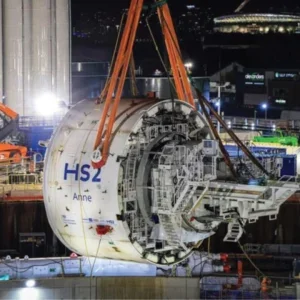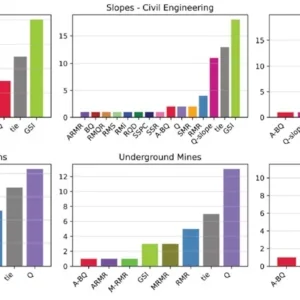A European contractor is undertaking a major tunnelling project in India for a Korean-funded client. So which law applies to the contract? Let us add to this mix the fact that there can be more than one law applying to a contract, or more correctly different parts of the contract, particularly where it contains an arbitration clause.
Conflict of laws
The area of the law which deals with these apparent conflicts comes within the sphere of what is known as Private International Law or perhaps more helpfully Conflict of Laws. This is the part of any national law that deals with whether or not that country has jurisdiction over a certain matter, or whether jurisdiction belongs to another country. In so deciding, the courts in each country will apply what are known as ‘connecting factors’, the priority given to these factors will vary between jurisdictions and are usually described with the Latin prefix ‘lex loci…’ (‘the law of the place of…’). The ‘connecting factors’ can include the domicile of the parties (lex loci domicili), the nationality of the parties (lex loci patriae), the place where the contract is made (lex loci contractus) or the place where the contract is to be performed (lex loci solutionis). The last of these can be particularly relevant to construction projects where, by their very nature, the subject of the contract is fixed immovably to the land.
The idea of national law itself when considering legal matters can be misleading as one ‘country’ may in fact contain several jurisdictions. The US is a good example, its federal system means that it is one country yet, federal matters apart, each state has its own legal system. This also applies in the UK; one country, three legal systems (England & Wales, Scotland and Northern Ireland). So that whilst the United Nations lists 191 nation states as members, there are reckoned to be upward of 300 separate legal systems in the world.
So, which law applies to the fictitious project mentioned at the outset? The fact is there is no universally accepted protocol that will prevent a situation where on the one hand two legal systems take jurisdiction of the same issue, or perhaps more unusually but possible, no legal system will take jurisdiction. This latter situation is known as renvoi.
There are conventions which deal with these matters but theses are restricted to European Union (EU) application, these are the Brussels and Lugano Conventions, now consolidated in EU Regulation 44/2001, which relate only to EU/EFTA jurisdictions and the Rome Convention 1980, which, while open for signature by any country, has to date only EU member signatories. In addition to the restricted geographical relevance the noted conventions and regulations also exclude their application to arbitration agreements, which, for reasons set out in a previous article[1] is the favoured forum for the settlement of construction disputes. Outside of these there is little formal international consensus on how conflict of laws should be resolved.
Applicable laws
As noted above, the matter is further complicated because there may be more than one law applicable to a contract, there are at least three matters that can be subject to separate consideration and hence potential conflict. Some commentators find more. The three considered here are:
i) The law of the underlying contract that governs the substantive rights and obligations of the parties.
ii) The proper law of an arbitration agreement, which has been reached either on an ad hoc basis or is incorporated as a clause within the contract, governing questions of validity and jurisdiction.
iii) The procedural (sometimes known as the curial) law governing the conduct of the arbitration.
The distinction between i) and ii) can be readily drawn by reference to the doctrine of separability explained in the previous article, whereby an arbitration agreement, even one embedded as a clause within a contract, takes on a life of its own and survives even if the underlying contract is terminated. The underlying contract and arbitration agreements are therefore separate contracts and as such can be subject to separate considerations of the law that governs each, although this would be more unlikely in an ‘embedded’ arbitration agreement.
The distinction between ii) and iii) might not be so readily apparent; ii) is the law governing the interpretation to submit to arbitration in the first place, and iii) is the law governing the conduct of the arbitration once under way. The former deals with matters such as the validity of the arbitration agreement itself and questions of the jurisdiction of the tribunal; the latter regulates such matters as the appointment of the tribunal and other procedural matters, evidence, disclosure and the like.
‘Seat’ of the arbitration
Point iii) also gives rise to the idea of an arbitral ‘seat’, i.e. the law of the country governing the procedural aspects of the arbitration. The thing to remember about the ‘seat’ of an arbitration is that it is, in most jurisdictions at least, not necessarily the geographical location of where the arbitration is being held. So for example an arbitration could have its ‘seat’ in France, i.e. French arbitral procedural law applies, however because it is more convenient for the parties and/or their representatives the arbitration is physically held in, let’s say, New York.
Chain of presumption
In the absence of agreement between the parties as to which law is to apply to each of these facets then there is what is known as a ‘chain of presumption’ that will be applied in many, but not all, jurisdictions. The law of the underlying contract, i), will be determined by any choice of curial (procedural) law, iii); the choice of law governing the arbitration agreement, ii), will be determined by the law of the underlying contract, i), and the curial (procedural) law iii) will be taken to be the law of the arbitral ‘seat’.
It can be seen therefore that the presumption is somewhat cyclical in its logic, such that the choice of ‘seat’ can become of critical importance. For instance, a contract containing no express choice of law clause but an arbitration clause that calls for disputes to be settled in London according to London Court of International Arbitration (LCIA) Rules will have English law applied as the curial law, which will mean the law of the underlying contract will be English. And so it follows that English will be the law of the arbitration agreement. It can also be seen that the chain has no starting link if there is no choice made for any of the facets, in which case a court would then begin the process of applying the ‘connecting factors’ described above.
Making express choices
So, what is the practical significance of this rather complex legal navel-gazing? It is to avoid lengthy and expensive legal wrangles over what would be a preliminary issue, before consideration of the substance of any dispute can even begin. Care should be taken at the outset of entering into contractual relations to make express choices of law. In jurisdictions the wishes of the parties as set out in the contract will be upheld, added to which express provision for choice of law promotes greater certainty when assessing the risk of legal outcomes before any formal dispute stage is reached.
The choice of law will include consideration of many features of the legal relationship to be entered into, considerations which are made more difficult when one is doing business in new and unfamiliar territory. Advice should be sought on as many aspects of the legal landscape of the prospective business location as possible; including the robustness of the legal system under which the contract will be administered, the availability of reliable legal representation, special rules applicable to contracts (formation, unfair terms and the like), any special rules applying to construction contracts and the potential for the recovery of damages or limitations thereto.
The legal landscape can appear less daunting when it is realised that the law in each jurisdiction can be broadly categorised as belonging to what are known as ‘legal families’. These can be defined as:
Common Law: the system of law built on a body of decided cases and legislative enactment. It is prevalent in England & Wales, most Commonwealth countries, Hong Kong and Singapore and in most jurisdictions in the US.
Civil Law: that is a codified system where legal answers are drawn from a comprehensive set of rules, which in turn have their origins in Roman law. It is prevalent in continental Europe and in many other jurisdictions around the world, which for one reason or another have adopted and adapted codes first drawn up in Europe. For example the Japanese civil code is based on the German.
Shari’ah: the system of law based on the Qur’an and other Muslim holy writings, which is prevalent, to a greater or lesser extent, in Muslim countries around the world, not only those in the Middle East. In some countries Shari’ah is applied in conjunction with a civil code.
So, an appreciation of which of these legal families is going to apply to your contract, can bring an element of relative familiarity, or strangeness, depending on previous knowledge and experience of work in countries with a similar legal heritage.
Choice of curial law
In regard to the choice of curial law, it will often be that the chosen jurisdiction will have no relationship with the nationality of either party, but may depend on certain jurisdictions having a reputation for providing a neutral and supportive environment for the primacy of arbitration, i.e. one where there is little or no court intervention in the arbitral process. For example contracts between western contractors and state undertakings in China will often provide for arbitration under the Stockholm Chamber of Commerce rules of arbitration, to which Swedish curial law would apply.
Alternatives to ‘National’ laws
It is increasingly common in international contracts to find the ‘choice of law’ is not only the law of one particular jurisdiction, it may be a combination of the common legal principles of two or more jurisdictions, as was the case on the Channel Tunnel[2]. Some arbitration agreements may allow an arbitral tribunal to act as ‘amiable composituer’ or decide ‘ex aequo et bono’, basically meaning they can decide in accordance with the principles of equity and good conscience, without applying the strict legal rules of a particular jurisdiction.
Parties may also choose that their rights and obligations are determined by reference to some standard or common principle of international commercial law that, advocates for what is known as the lex mercatoria (mercantile law) say, do not recognise the ‘parochialism’ of national boundaries.
Such contractual provisions for the time being would though be more common in an international sale of goods contract rather than a construction contract. However, what may be found in a construction contract is reference to the UNIDROIT Principles of International Commercial Contracts. These comprehensive provisions provide a detailed code for the conduct of contractual relations, drawing on principles from various jurisdictions and legal traditions and therefore have the advantage of being jurisdiction-neutral if choice of law is a sticking point in negotiating a contract.
Hobson’s choice
So it can be seen that on the one hand there is almost too much choice, on the other, in practice it may be that there is no real choice at all; at least as far as one of the parties is concerned. In the context of international construction contracts the choice of law will already have been made by the procuring party by the time the tender/bidding documents are issued by way of the draft conditions of contract included therein. For example under the World Bank Standard Bidding Documents it is mandatory that the ‘Appendix To Bid’ relating to the FIDIC (4th Edition) choice of law sub-clause 5.1(b) should be completed by the Employer prior to the issue of the bid documents.
There may be scope for negotiation, but in the case of major infrastructure projects they will usually be the subject of strict procurement guidelines such as the World Bank’s, which call for unqualified bids. In this case the bidding contractor should carry out a risk assessment of the implications of selected legal system taking account of the features of the legal landscape mentioned above.
Conclusions
The conclusions to the matters discussed above are short and sweet. Be aware of the implications of conflict of laws and avoid unnecessary legal wrangles by making express choices in your contract.
Contract Law






